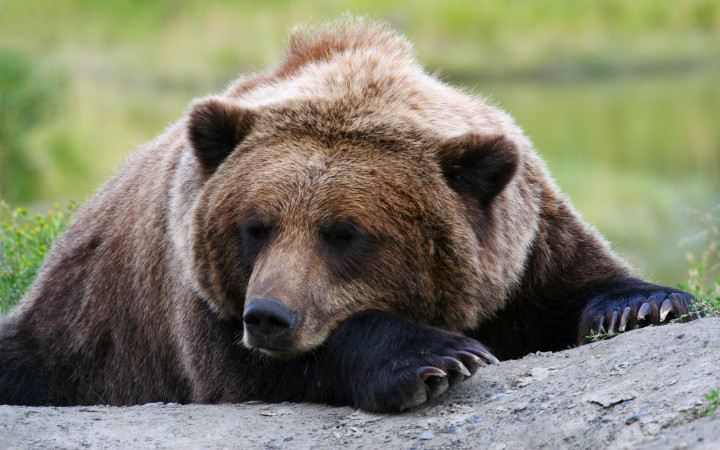Today’s Wonder of the Day was inspired by Ms. Trevino's 5th grade Science class from Mercedes, TX. Ms. Trevino's 5th grade Science class Wonders, “What happens if you wake a bear from hibernation?” Thanks for WONDERing with us, Ms. Trevino's 5th grade Science class!
Have you ever heard someone say, “Don’t poke the bear”? Did you WONDER where that saying came from? Of course, it means you shouldn’t provoke someone if they could cause trouble for you. But why include bears in that metaphor? Are they easily angered?
Actually, no—bears are often shy. Still, they will defend themselves if they sense danger. That’s why it’s important never to sneak up on or scare these animals. After all, many adult bears are much larger and stronger than humans. We know we wouldn’t want to end up on a bear’s bad side!
What happens if you wake a bear from hibernation? Experts say it’s best not to find out. A bear that senses a threat can wake quickly to defend itself. That’s because bears’ body temperatures only lowers by a few degrees when they hibernate. This helps them become alert much faster, compared to other animals. Many other species lower their temperatures to near freezing for hibernation.
While many people think of hibernation as a deep sleep, that’s not exactly correct. In fact, bears can wake up and move around their dens during this time. That’s especially true if they sense danger. Bears have been known to even leave their dens if they become damaged.
Why do bears hibernate? Like all living things, their bodies burn energy. They get more energy by eating. During the cold winter months, it’s much harder to find food. Hibernation is a way for bears—and other animals—to live longer without eating.
During hibernation, a bear’s bodily functions slow down. They do so to save energy. Their body temperature drops. Their breathing and heart rates slow. Their body also starts to burn calories slower. These changes allow the bear to survive longer on its own body fat.
Bears use up much of their body fat during hibernation. However, they keep most of their muscle and bone mass. This is very interesting to scientists. When humans go long periods of time without using their muscles, they lose those tissues. This is common in coma patients. Some experts study bear hibernation in hopes of learning what allows bears to retain muscle.
Researchers also want to learn how bears control their body temperatures. They think this could help future stroke patients. They say lowering a person’s temperature after a stroke could limit damage to the brain.
Plenty of other animals hibernate—including chipmunks, snakes, and bees. Do they do so in the same way as bears? Not exactly. As mentioned, most hibernating animals lower their body temperatures much further than bears. Many animals also hibernate at different times of the year. That’s right, it’s not just a winter practice! Some animals hibernate in the summer.
Never poke a bear—especially one that’s hibernating. It’s important to avoid other resting animals, too. Waking these critters can be very bad for them. They need to save their energy.
After all, who likes to be rudely awakened? Most kids dread the sound of the alarm clock each morning. Animals need their rest, just like you do! If you come across a hibernating creature—big or small—keep your distance.
Standards: NGSS.LS1.A, NGSS.LS1.C, NGSS.LS2.A, CCRA.L.3, CCRA.L.6, CCRA.R.1, CCRA.R.2, CCRA.R.4, CCRA.R.10, CCRA.SL.1, CCRA.SL.2, CCRA.W.2, CCRA.W.7, CCRA.L.1, CCRA.L.2




